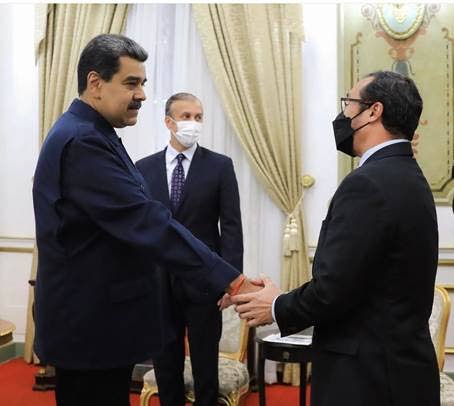The Dragon dance

Energy Minister Stuart Young has again expressed confidence that Trinidad and Tobago (TT) would successfully conclude and execute a deal to receive gas from Venezuela's Dragon Field, but the challenges before first gas are not to be underestimated.
Young gave an update with little details owing to ongoing negotiations at Thursday's post-Cabinet briefing, after meeting Venezuelan officials in Caracas recently.
The two-year waiver given by the US Treasury Department is a tiny window in the timelines of petroleum extraction and the limitations on payment to Venezuela are an additional constraint.
The deal relaxes severe sanctions the US has placed on Venezuela and the terms may offer an opportunity for TT, but let there be no mistake, the opportunity only exists to serve the needs of the US in the face of energy constraints resulting from Russia's invasion of the Ukraine.
There's no clear idea of how long Russia will wage war, how long Ukraine will continue to effectively resist and what the US plans for the relaxation of sanctions would be in the complex circumstances likely to exist when the deal approved by the Treasury Department's Office of Foreign Assets Control (OFAC) ends.
The Dragon field find, a massive PDVSA resource discovered in 1985, comprises an estimated 4.2 trillion cubic feet of natural gas reserves, idled under US sanctions, that borders TT's mature but active Hibiscus field off north-western Trinidad.
In 2018, TT was negotiating for access to the field, which has the potential to deliver significant supply to TT's under-utilised LNG production facilities when tighter US sanctions scuttled talks.
Shell is likely to lead the development of the project, which operates Hibiscus and has a long and frustrating history of trying to exploit the field, going back decades to the Mariscal Sucre project.
The US is positioning the deal as a step forward for energy security for the Caribbean region, deftly declining to mention that the estimated yield from Dragon is likely to run between 150-350 million cubic feet of gas per day, a production capacity that will surge well past the needs of the region to northern markets. Venezuela has been largely silent about the OFAC deal, perhaps mulling the real-world value of the hardline restriction on cash payments and what it means for value revenue as payment for its natural resource.
President Nicolas Maduro has already dismissed the limitation as modern-day colonialism. But it's also a lifeline for the troubled country that it cannot afford to ignore.
TT has asked for a ten-year guarantee of access to the field, but the US continues to insist that it must continue to do things the OFAC way, as if it had not already overturned severe policy decisions regarding Venezuela in its own interests.
TT must also insist on its own interests being adequately served to ensure that it isn't left holding an unsatisfactory bag if things don't work out.

Comments
"The Dragon dance"